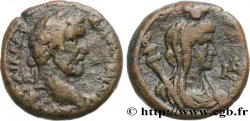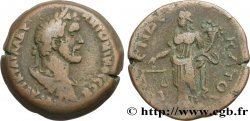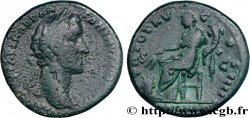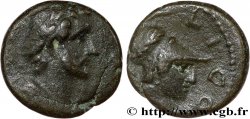v32_0240 - ANTONINO PIO Sesterce, (GB, Æ 31)
MONNAIES 32 (2007)
Начальная цена : 250.00 €
Назначить цену : 500.00 €
непроданный лот
Начальная цена : 250.00 €
Назначить цену : 500.00 €
непроданный лот
Тип Sesterce, (GB, Æ 31)
Дата: 148
Монетный двор / Город: Roma
Металл: bronze
Диаметр: 31 mm
Ориентация осей монеты: 12 h.
Вес: 24,33 g.
Редкость: R3
Комментарии о состоянии
Exemplaire sur un petit flan épais, bien centré des deux côtés. Beau portrait. Frappe molle au revers. Jolie patine vert olive
Лицевая сторона
Аверс: легенда: ANTONINVS AVG - PIVS P P TR P XI.
Аверс: описание: Tête laurée d’Antonin le Pieux à droite (O*).
Аверс: перевод: “Antoninus Augustus Pius Pater Patriæ Tribunicia Potestate undecimum”, (Antonin auguste pieux, père de la patrie, revêtu de la onzième puissance tribunitienne).
Обратная сторона
Реверс: легенда: COS - IIII/ S|C.
Реверс: Описание: Antonin voilé, vêtu de la toge debout à gauche, tenant une patère de la main droite et un bâton de la main gauche, sacrifiant au-dessus d’un trépied allumé.
Реверс: перевод: “Annona Augusti Consul quartum”, (L’Annone de l’auguste consul pour la quatrième fois).
Комментарий
Poids léger. Rubans de type 3. Ce sesterce est en fait beaucoup plus rare que ne le laissent supposer les ouvrages généraux.








 Cообщить об ошибке
Cообщить об ошибке Распечатать страницу
Распечатать страницу Отправить мой выбор
Отправить мой выбор Задать вопрос
Задать вопрос Consign / sell
Consign / sell
 Информация
Информация



